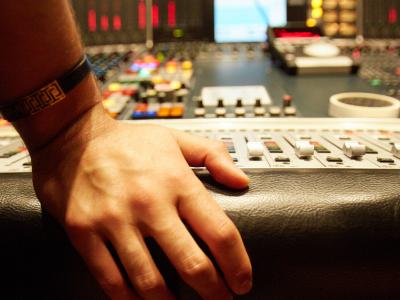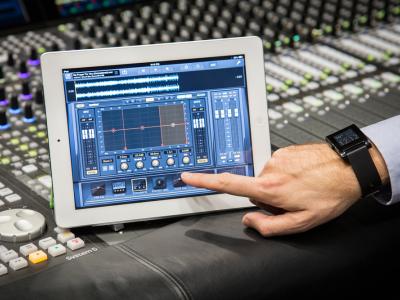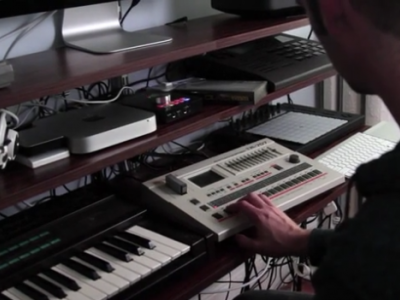What does a Re-Recording Mixer (Film and TV) do?
One of the last steps before a film, television episode, or advertisement is released to the public is assembling its soundtrack, a word which, in the industry sense, refers not just to music but to every piece of synchronized audio, including dialogue and effects. This task falls to the re-recording mixer, who takes previously recorded and edited audio elements—the work of production sound teams, dialogue editors, foley artists, sound effects editors, composers, music editors, and music supervisors—and layers them together, balancing the levels so that the sound tells a clear and effective story.
The best re-recording mixers excel in balancing audio so that it enhances the work's storytelling without distracting from it.
In many ways, re-recording mixers are the final gatekeepers through which all audio must pass in the film, television, and advertising postproduction cycle. Working in two phases—an initial sound mix and a final mix after the material has been shown to test audiences—re-recording mixers attempt to fix any final audio problems that may have slipped under the radar. They cover up any environmental noise, cross-fade between different tracks, apply reverb and other filters, and adjust varying audio levels, all in the pursuit of a seamless audio experience.
While re-recording mixers do their fair share of technical damage control, their most important job is to ensure that the story is told effectively through the sound. This means that every piece of audio is in the right place, demanding the right amount of attention from the audience, and supporting the aesthetic direction of the project as a whole. Taking into account feedback from the director, producers, supervising sound editor, and test audiences, the re-recording mixer must decide when the dialogue should rule the mix, when a plot-relevant sound effect needs to rise above other competing sounds, and when the music should take the lead to drive home an emotionally resonant moment.
At a Glance
This is a high-responsibility role that requires impressive credentials. Most re-recording mixers have a bachelor's or master's degree in a field like audio production or engineering. They typically must work in several different roles in the world of film/television audio postproduction before getting a shot at this one. Often, this means stints as a dialogue editor, effects editor, or music editor. Re-recording mixers who develop a reputation for high-quality work get the opportunity to work on bigger budget, higher profile work, or find a full-time position with a Hollywood audio production company.
Aspiring mixers should study up on the work of dialogue editors, effects editors, and music editors, as well as gain familiarity with audio storytelling conventions in visual media. Internships and apprenticeships in the field of audio postproduction, while difficult to find, are excellent avenues toward this role—although perhaps the best résumé for a beginning re-recording mixer is a number of previous credits on independent, student, and short films. While many jobs are posted openly on traditional job listing websites, networking is a must in Hollywood, and knowing the right person can make all the difference.
- Audio production
- Audio engineering
- Audio editing
- Sound design
- Digital audio workstations (DAWs)
- Film knowledge
- Good ears
This is a role in which perfectionism is allowed and even encouraged, as long as it doesn’t stand in the way of timeliness. The best re-recording mixers are usually detail-oriented, focused, humble, and speedy—capable of working self-directed for hours at a time. They are also excellent listeners in both senses of the word: they take direction well and can distinguish subtle nuances in sound. Some say that the highest compliment for a re-recording mixer is when the audience doesn’t notice the mix. This is debatable, but it's certainly true that top re-recording mixers excel in creating audio that enhances storytelling without distracting from it.
Most re-recording mixers are either freelance or employed by audio postproduction houses. Either way, it’s typical to live near the film and television industry in Los Angeles and commute to a film studio’s soundstage when working a job. Sometimes two or more re-recording mixers work together collaboratively or in the presence of a larger creative team, but more often than not, re-recording mixers work alone. Generally, this career entails periods of focused, high-intensity work intermingled with periods of scarcity; achieving a steady workflow is one of the main measures of success.









